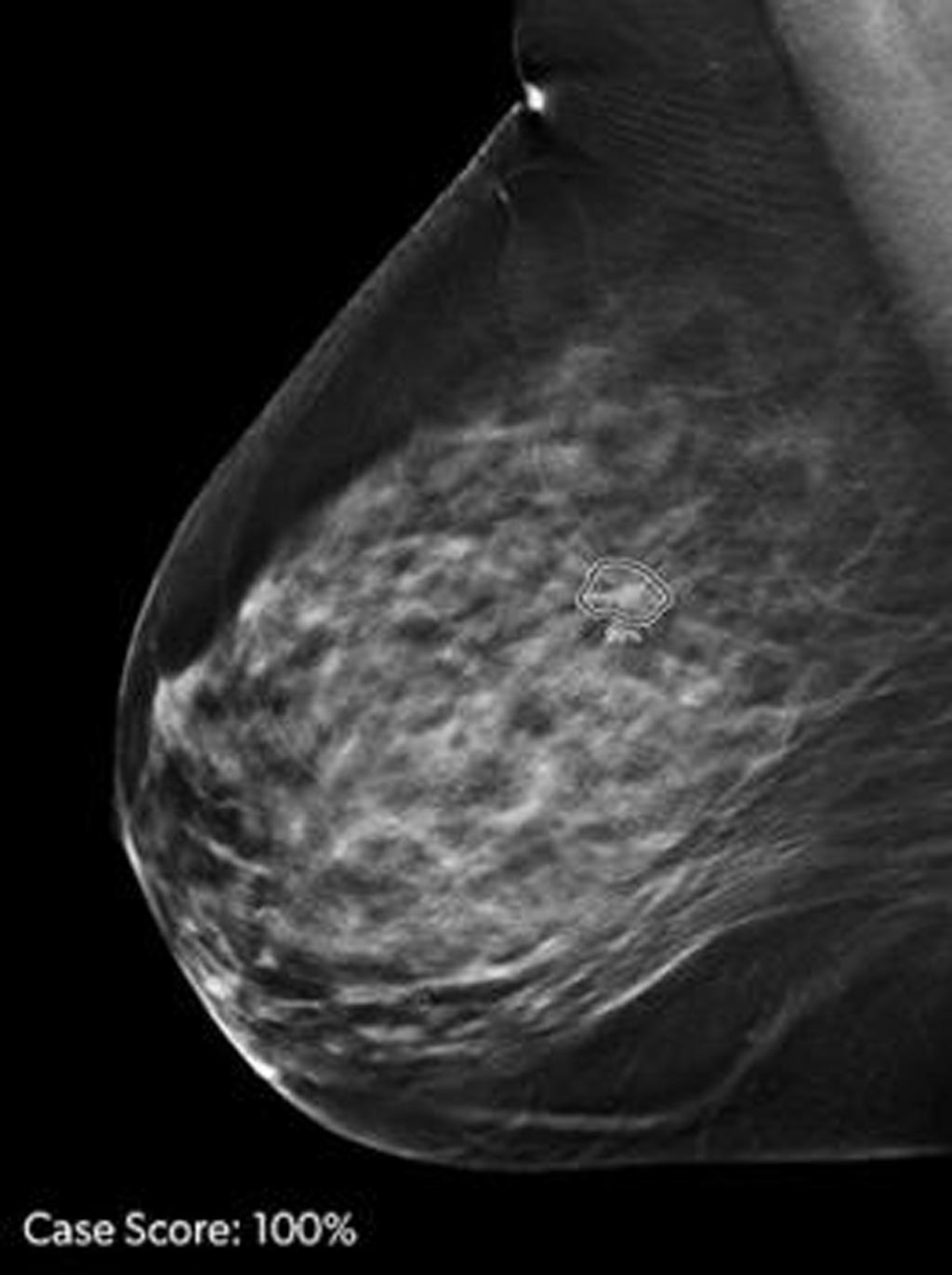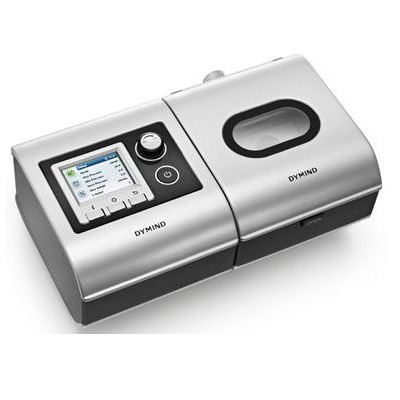Cancer Detection Technology Built on AI Receives FDA Clearance
|
By HospiMedica International staff writers Posted on 25 Dec 2018 |

Image: ProFound AI is a deep-learning cancer detection and workflow solution for DBT (Photo courtesy of iCAD).
A new deep-learning cancer detection software solution for digital breast tomosynthesis (DBT) has received clearance from the US FDA for commercial sales and clinical use in US. The solution named ProFound AI is built on artificial intelligence (AI) and has been developed by iCAD, Inc (Nashua, NH, USA), a provider of cancer detection and therapy solutions.
ProFound AI is a deep-learning cancer detection and workflow solution for DBT that delivers critical benefits to radiologists, their facilities, and their patients through an improvement in cancer detection rates by an average of 8% and reduction in unnecessary patient recall rates by an average of 7%. The technology is trained to detect malignant soft-tissue densities and calcifications. It also provides radiologists with scoring information representing the likelihood that a detection or case is malignant based on the large dataset of clinical images used to train the algorithm.
ProFound AI has received FDA clearance based on positive clinical results from a large reader study completed earlier this year and presented at this year’s Radiological Society of North America (RSNA) annual meeting in Chicago, USA. In the study, 24 radiologists read 260 tomosynthesis cases, both with and without the ProFound AI solution. The study’s findings revealed increased cancer detection rates, reduced false positive rates and patient recalls, and a significant decrease of more than 50% on average in interpretation times.
“Obtaining FDA clearance for ProFound AI opens a new and substantial addressable market for iCAD. This enables us to offer clinicians globally an unrivaled cancer detection and workflow solution built on the latest advances in deep-learning,” said Stacey Stevens, Executive Vice President and Chief Strategy and Commercial Officer at iCAD. “Clinical reader study results and comprehensive stand-alone testing have shown unprecedented improvements in both clinical performance and reading efficiency. We are proud to introduce revolutionary technology that will fundamentally transform breast cancer detection and patient care.”
ProFound AI is a deep-learning cancer detection and workflow solution for DBT that delivers critical benefits to radiologists, their facilities, and their patients through an improvement in cancer detection rates by an average of 8% and reduction in unnecessary patient recall rates by an average of 7%. The technology is trained to detect malignant soft-tissue densities and calcifications. It also provides radiologists with scoring information representing the likelihood that a detection or case is malignant based on the large dataset of clinical images used to train the algorithm.
ProFound AI has received FDA clearance based on positive clinical results from a large reader study completed earlier this year and presented at this year’s Radiological Society of North America (RSNA) annual meeting in Chicago, USA. In the study, 24 radiologists read 260 tomosynthesis cases, both with and without the ProFound AI solution. The study’s findings revealed increased cancer detection rates, reduced false positive rates and patient recalls, and a significant decrease of more than 50% on average in interpretation times.
“Obtaining FDA clearance for ProFound AI opens a new and substantial addressable market for iCAD. This enables us to offer clinicians globally an unrivaled cancer detection and workflow solution built on the latest advances in deep-learning,” said Stacey Stevens, Executive Vice President and Chief Strategy and Commercial Officer at iCAD. “Clinical reader study results and comprehensive stand-alone testing have shown unprecedented improvements in both clinical performance and reading efficiency. We are proud to introduce revolutionary technology that will fundamentally transform breast cancer detection and patient care.”
Latest AI News
Channels
Critical Care
view channel
Light-Based Technology to Measure Brain Blood Flow Could Diagnose Stroke and TBI
Monitoring blood flow in the brain is crucial for diagnosing and treating neurological conditions such as stroke, traumatic brain injury (TBI), and vascular dementia. However, current imaging methods like... Read more
AI Heart Attack Risk Assessment Tool Outperforms Existing Methods
For decades, doctors have relied on standardized scoring systems to assess patients with the most common type of heart attack—non-ST-elevation acute coronary syndrome (NSTE-ACS). The GRACE score, used... Read moreSurgical Techniques
view channel
Minimally Invasive Endoscopic Surgery Improves Severe Stroke Outcomes
Intracerebral hemorrhage, a type of stroke caused by bleeding deep within the brain, remains one of the most challenging neurological emergencies to treat. Accounting for about 15% of all strokes, it carries... Read more
Novel Glue Prevents Complications After Breast Cancer Surgery
Seroma and prolonged lymphorrhea are among the most common complications following axillary lymphadenectomy in breast cancer patients. These postoperative issues can delay recovery and postpone the start... Read morePatient Care
view channel
Revolutionary Automatic IV-Line Flushing Device to Enhance Infusion Care
More than 80% of in-hospital patients receive intravenous (IV) therapy. Every dose of IV medicine delivered in a small volume (<250 mL) infusion bag should be followed by subsequent flushing to ensure... Read more
VR Training Tool Combats Contamination of Portable Medical Equipment
Healthcare-associated infections (HAIs) impact one in every 31 patients, cause nearly 100,000 deaths each year, and cost USD 28.4 billion in direct medical expenses. Notably, up to 75% of these infections... Read more
Portable Biosensor Platform to Reduce Hospital-Acquired Infections
Approximately 4 million patients in the European Union acquire healthcare-associated infections (HAIs) or nosocomial infections each year, with around 37,000 deaths directly resulting from these infections,... Read moreFirst-Of-Its-Kind Portable Germicidal Light Technology Disinfects High-Touch Clinical Surfaces in Seconds
Reducing healthcare-acquired infections (HAIs) remains a pressing issue within global healthcare systems. In the United States alone, 1.7 million patients contract HAIs annually, leading to approximately... Read moreHealth IT
view channel
Printable Molecule-Selective Nanoparticles Enable Mass Production of Wearable Biosensors
The future of medicine is likely to focus on the personalization of healthcare—understanding exactly what an individual requires and delivering the appropriate combination of nutrients, metabolites, and... Read moreBusiness
view channel
Philips and Masimo Partner to Advance Patient Monitoring Measurement Technologies
Royal Philips (Amsterdam, Netherlands) and Masimo (Irvine, California, USA) have renewed their multi-year strategic collaboration, combining Philips’ expertise in patient monitoring with Masimo’s noninvasive... Read more
B. Braun Acquires Digital Microsurgery Company True Digital Surgery
The high-end microsurgery market in neurosurgery, spine, and ENT is undergoing a significant transformation. Traditional analog microscopes are giving way to digital exoscopes, which provide improved visualization,... Read more
CMEF 2025 to Promote Holistic and High-Quality Development of Medical and Health Industry
The 92nd China International Medical Equipment Fair (CMEF 2025) Autumn Exhibition is scheduled to be held from September 26 to 29 at the China Import and Export Fair Complex (Canton Fair Complex) in Guangzhou.... Read more
















